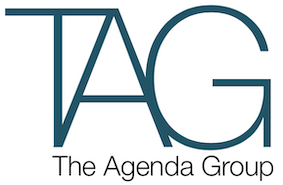The ACC’s “Organised Crime and Drugs in Sport” report makes for fascinating reading. Necessarily lacking in detail, it nevertheless provides sufficient information to remind readers that professional sport is susceptible to corruption in a number of ways. The ACC report uses a quote from the Australian Sports Commission’s own publication, The Essence of Australian Sport that, “Australians are proud of their sporting ability and reputation as a nation of good sports”. This reputation is now being challenged.
Along with concerns about the use of illegal and inappropriate substances, the report also dips into the question of match-fixing. For some time, sports administrators have been concerned about drugs and corrupt betting practices and the ACC’s report now brings the two together. Properly managed professional sports already have integrity units charged with the responsibility of protecting any aspect of their sport that might be compromised. The sports know that it is in their interests to do so but some are still grappling with the scope of issues that need to be pursued.
The AFL gets a tick from the ACC in the report for its “progressive integrity management framework” although the AFL Commission itself recognises the need to develop its integrity mechanisms further to stay ahead of the game.
Various other enforcement bodies and agencies also continue to invest in integrity management. INTERPOL has established its Integrity in Sport unit, based in Lyon, France and the Council of Europe has adopted the Recommendation Against the Manipulation of Sports Results.
The Secretary of the International Olympic Committee’s Ethics Commission, Pâquerette Girard-Zapelli, has spoken about how her Commission is working with United Nations organisations to extend the reach of the Council of Europe’s convention on match fixing beyond Europe. The World Sports Law Report has made the interesting comment that in October 2012, Ms Girard-Zapelli “revealed that the United Nations Office on Drugs and Crime is conducting a study on the application of its conventions to sports betting issues, and is negotiating with gambling regulators in Nevada, Victoria and Korea on an international framework for tackling match-fixing.”
No doubt at the same time as regulators and law enforcement agencies are working hard to put in place measures to protect sport there are interests on the other side trying to find ways to maximise their illegal gains.
In the midst of this, Senator Nick Xenophon has been reported as calling for sports betting to be suspended temporarily. What would be the consequences of taking such action? The first point to make is that illegal sports betting operators, primarily outside Australia, already provide their services in disregard of the law. It would be safe to assume, therefore, that any suspension of sports betting will be ignored by these black market operators. So, if a ban were to be implemented the only betting likely to be suspended would be that which currently operates in an environment of properly regulated approvals with integrity measures and responsible gambling requirements built in.
In addition, under the regulated scheme currently in place, sports have agreements with licensed betting operators to exchange integrity information – such as unusual betting transactions or bets being placed by individuals within sporting organisations who, as part of their approval to participate, are banned from placing bets. Should sports betting be suspended, this exchange of information will stop and sports may find that their ability to monitor the betting behaviour of their participants ineffective. This would make the sports’ players and officials more susceptible to corruption.
In effect, a ban on sports betting – temporary or not – will result in the perverse consequence that sporting contests will be at greater risk of being compromised. Calls for a ban on sports betting may be well intentioned, but this would not be the best way forward.
What should be done instead? As the AFL has already indicated it will do, sports need to invest more in integrity measures. This is not just at HQ. All participant clubs and affiliated competitions need to recognise that their existence can be compromised if the door to criminal activity is not closed shut. Sporting clubs will need to assess their internal controls and be prepared to take tough action should there be any breaches. The measures clubs will need to take include education of their players and other officials, but also adoption of a properly constructed compliance program which all players and officials will need to follow. As the ACC report also says, these compliance activities will need to be extended to consultants and contractors engaged by clubs to ensure the club and all of its activities conform to relevant rules and expectations.
Law enforcement agencies, if they haven’t already done so, need to ensure they have the necessary capabilities to enforce relevant laws. Already Victoria Police has issued a statement announcing the establishment of a new Sporting Integrity Intelligence Unit.
And it’s time for governments around Australia to stop sitting on their hands and legislate to make it an offence – with significant gaol time if breached – to cheat at sport for the intention of financial gain. In addition, laws which match, or improve upon, the sports betting legislation passed by Victoria in 2007 should be introduced by other State governments, not only to provide better coverage across Australia, but to signify the intentions of those governments to take the issue of sports corruption seriously.
